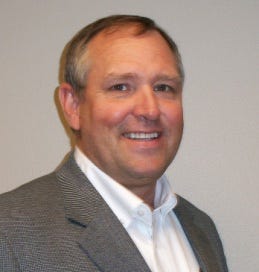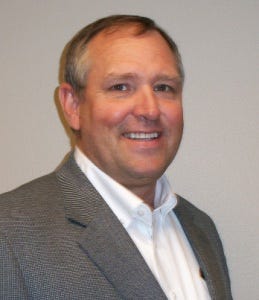VIEWPOINT | A bright future exists for ethanol and corn production, if we allow it
Guest column by Walt Wendland, Ringneck Energy president and CEO
Most South Dakotans agree that we can’t underscore the importance of corn production for our state. This is why many farmers, ethanol producers, politicians and agriculture-focused associations continue advocating for the use of carbon capture technology to secure a steady corn market. In fact, last month, the South Dakota Corn Growers Association endorsed the use of this technology and CO2 pipelines, effectively backing the need for such technology to ensure a strong market demand for corn production continues in the coming decades.
LETTER | Baseball stadium gift from pipeline company would be monumental reminder
Ethanol producers purchase about 70 percent of the corn grown in South Dakota, and since 2021, 13 ethanol plants in the state have agreed to be a part of Summit Carbon Solutions’ CO2 pipeline. This includes Ringneck Energy in Onida, where I am president and CEO. I have stated before how important it is for ethanol plants to have access to carbon capture and sequestration (CCS) so that we can tap into new, low-carbon fuel markets and grow the corn industry.
Perhaps one of the most glaring examples of emerging markets is sustainable aviation fuel (SAF). Recently, the South Dakota Ethanol Producers Association commissioned a study on SAF, which found tremendous opportunities for South Dakota, farmers and ethanol producers, so long as we take steps to be active participants in making it a reality.
You may wonder how SAF ties into ethanol production and the CO2 pipelines. Many industries, airlines included, have set goals to have net-zero emissions by 2050. However, it is incredibly difficult to electrify an airplane in a cost-effective way, meaning that a low-carbon fuel is the answer to meeting this goal. As previously stated, if ethanol plants, like Ringneck Energy, can utilize CCS through Summit’s pipeline, all ethanol we produce will be classified as low-carbon fuel and can be used for SAF. This is an enormous opportunity for anyone with ties to the corn industry, or farmers who sell their product to ethanol producers.
That being said, the study clearly states that such potential cannot be fully realized without CCS technology for ethanol. Without Summit’s pipeline, ethanol producers and farmers cannot tap into this economic bolster that is SAF. Let’s dive into the facts.
If South Dakota enables CCS, our state has the potential to capture 400 million gallons of new ethanol production that could come online to support SAF production.
Construction of new ethanol production capacity to support this growth is expected to generate $628 million in new output, with millions more expected from construction costs and other new facilities.
The impacts to the South Dakota economy from construction of new plants to support SAF will likely result in several thousand jobs in the years when the plants are being built. It is likely that new plants will result in quality, long-term jobs for those who work at the plants.
Across our state, with the assumption that these new ethanol plants will use approximately 147 million bushels of corn annually and with oilseeds crush plants likely add $128 million of additional income to farmers.
I encourage farmers to read and engage with the remaining benefits mentioned in this study. The bottom line is that with the emergence of SAF, ethanol has a bright future ahead to support this up-and-coming industry. However, it is only through Summit’s CO2 pipeline that we will be able to reach this goal and tap into these benefits.
South Dakota farmers and ethanol producers deserve this major economic victory. Therefore, it is imperative for Summit’s project to receive the support necessary to cross the finish line. The future of ethanol, SAF, and robust corn markets depend greatly on our ability to come together and achieve a win for CO2 pipelines and South Dakota.
Walt Wendland is the chairman, president and CEO at Ringneck Energy in Onida, South Dakota. He also serves as board president of the South Dakota Ethanol Producers Association.















Carbon capture is not necessary for ethanol plants to survive. Plants need Co2 to thrive.
It's all about money. If there were no Q45 tax credits attached to carbon sequester NO ONE would be supporting it.
It's all about money at the expense of landowners.
Shame on everyone who is trying to spin the facts to make people believe the Co2 pipeline is necessary for ethanol plants to continue operations. That IS NOT the case and Walt surely knows it as well.
Let's dive into a few more facts:
Gov. Noem's son-in-law, Kyle Peters, is a registered lobbyist for Gevo Inc. Gevo plans to partner with Summit Carbon Solutions for Sustainable Aviation Fuel. Cozy!
In November, GEVO stock was listed as an "energy stock to sell," with their stock worth less than a dollar. They have a very complicated ownership structure with layers of nested companies - who's watching to make sure we are not inviting foreign ownership of this plant?
Every ethanol plant will need 21 to 27 million gallons a year for the CO2 sequestration process, and additional energy will be needed to prepare and compress CO2 to a supercritical state. If all 13 ethanol plants participated, they would need 273,000,000 - 351,000,000 gallons of water every year. The Legislature just passed a joint resolution asking for 19,121 acre feet from the Missouri: Elk Point Aquifer. That equals 6,230,605,229 gallons a year to serve Clay, Lake, Lincoln, McCook, Minnehaha, Turner, and Union in the Iowa counties of Lyon, O'Brien, Osceola, and Sioux and in the Minnesota counties of Nobles and Rock. Should we use millions of gallons of water to compress CO2 into waste when we cannot even keep enough water for our communities?
Why do we think driving demand for temporary construction jobs is a plus when we are paying millions of dollars in advertising to recruit workers to fill the existing construction jobs?
Summit's economic study, done by Ernst & Young, states on pages 16 and 17 that Summit provided data to them and that they used double counting. Further, it says: Any third parties reading the report should be aware that the report is subject to limitations, and the report's scope was not designed for use or reliance by third parties for investment purposes or any other purpose.
The only major economic victory is for Summit's investors, who will undoubtedly sequester all the profits.